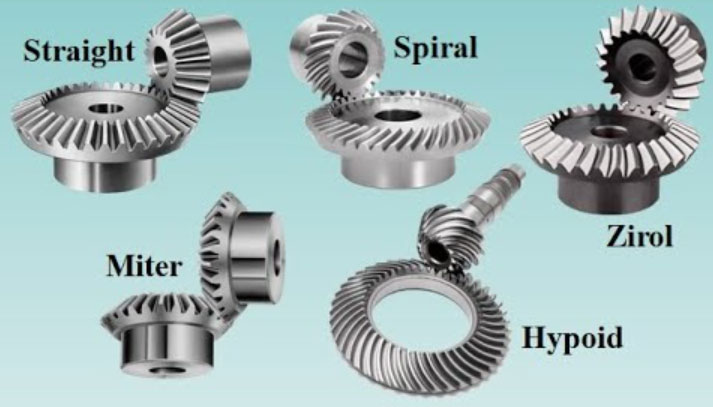Bevel gears play a significant role in modern machinery across a wide range of industries. They offer unique advantages that make them indispensable in various applications. Let’s explore the significance of bevel gears in modern machinery:

- Power Transmission: Bevel gears are crucial for transmitting power between intersecting shafts. Their conical shape allows for efficient power transfer and torque conversion at different angles. This makes them ideal for applications where the input and output shafts need to be oriented at specific angles, such as in automotive differentials, right-angle drives, and shaft connections in complex machinery.
- Compact Design: Bevel gears enable the creation of compact and space-saving machinery designs. Their ability to transmit power at right angles eliminates the need for additional components, such as intermediate shafts and multiple gear stages. This results in more compact and efficient machinery layouts, allowing for optimized use of space in various applications.
- Precision and Efficiency: Bevel gears can be manufactured with high precision, allowing for smooth and efficient power transmission. Their precise tooth profiles and meshing characteristics minimize friction, wear, and power losses. This makes them suitable for applications where precision, reliability, and high-efficiency transmission are essential, such as robotics, aerospace systems, and high-performance automotive drivetrains.
- Variable Speed and Torque Control: Bevel gears provide the ability to vary the speed and torque output by adjusting the gear ratio. By using different gear sizes or changing the angle between the gear axes, the rotational speed and torque can be modified to suit specific requirements. This feature is advantageous in applications that require variable speed control, such as machine tools, conveyor systems, and industrial mixers.
- Noise and Vibration Control: The design and meshing characteristics of bevel gears allow for smooth and quiet operation. With proper tooth profiling and gear quality control, bevel gears can significantly reduce noise and vibration levels in machinery. This is particularly important in applications where noise reduction is crucial, such as in automotive differentials, precision instruments, and gear systems operating in noise-sensitive environments.
- Versatility: Bevel gears offer versatility in terms of their application range and adaptability to different operating conditions. They can be manufactured from various materials, such as steel, bronze, and plastics, depending on the specific requirements of the application. Bevel gears are capable of handling a wide range of loads, speeds, and operating temperatures, making them suitable for diverse industries, including automotive, aerospace, marine, power generation, and industrial machinery.
- Customization and Specialized Applications: Bevel gears can be tailored to meet specific application needs. Manufacturers can customize the tooth profiles, gear ratios, and other design parameters to optimize performance for specialized applications. This flexibility makes bevel gears highly adaptable to unique requirements, such as those found in defense systems, medical equipment, and precision motion control mechanisms.
In summary, bevel gears offer significant advantages in modern machinery, including efficient power transmission, compact design, precision, variable speed control, noise reduction, versatility, and customization options. Their unique characteristics make them indispensable components in a wide range of industries, contributing to the reliable and efficient operation of various types of machinery.
